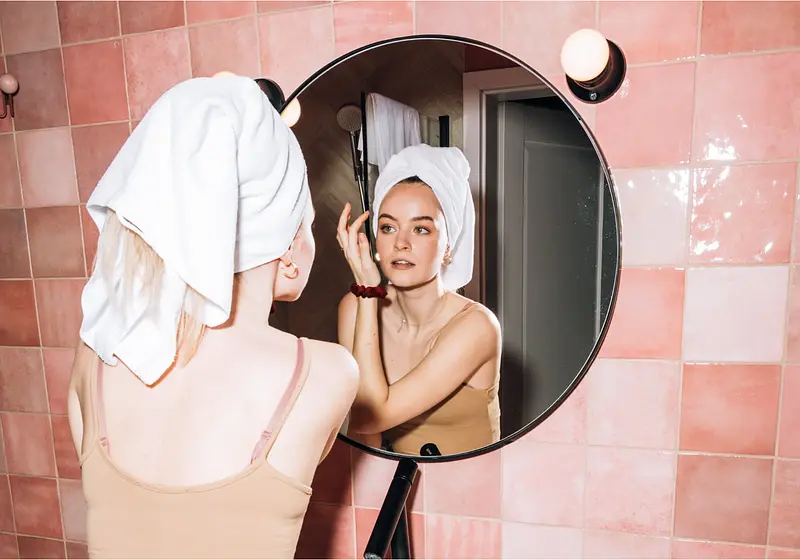Without a doubt, we've all heard of how we should pursue happiness to truly live our lives. Additionally, we may have heard that to truly live to the fullest, we have to give our lives purpose. And, of course, there's also the conjoined idea that our primary purpose should be happiness.
How can we know which is correct? And is it one size fits all? Let's take a brief look.
Let us slide into your dms 🥰
Get notified of top trending articles like this one every week! (we won't spam you)Being Happy
If we could, many of us would like to have the happy emotion switched on permanently. Unfortunately, that is not the case, but that's okay! It gives space for our other emotions to take place, like anger, sadness, amusement, fear, etc.
If we lived our entire lives with just one emotion on repeat, it would get boring. Our emotions are a fundamental component of what makes us human, enabling us to confront various situations and use them as tools for personal development and growth.
We can even use them to appreciate our other emotions better. After being upset or under stress for a long time, that fleeting sense of happiness can be the breath of air we desperately need.
Despite all the beautiful things we now know about happiness, we also need to accept that it has a variety of subjective meanings. For instance, a person who enjoys running a 2-kilometer marathon may not define happiness in the same way as someone who would instead be watching a movie at home. We all have various things that bring us joy, even though they may not be suitable for us. With that said, our perception of happiness may not always be what is best for us.
Let me use an example to help make this more understandable: you love playing volleyball and put in a lot of time practicing to improve your skills. However, you ignore the fact that your body requires rest and continue to push it until you become ill. Some activities are fine in moderation, while others are not.
Take a step back and ignore your emotional demands. Every now and then, you will notice that your cognitive and physical needs are diverging and that your emotional requirements are taking precedence at the expense of the former.

Take the Quiz: What is your IQ level?
Find out how smart you are by taking this quiz!
Having Purpose
Whether we like it or not, we all have some purpose we are currently living to fulfill. It can be short-term or long-term, and a person can also have more than one purpose at a time. If you're a student, one of your goals could be to finish the semester with decent and passing grades.
If you're a sales manager, one of your objectives could be to raise sales and increase profits. All these examples mentioned above are purposes that we have in our work/academic life. This begs the question: What is our goal outside work/academic life?
No one is forever going to stay a student. If you're employed, you will likely change positions throughout your life or retire. So, what happens to our purpose once we are out of this loop?
Do we simply have no more goals and submit to the time we have left? The standard answer is no. Some people use this newfound time to find another purpose that will serve them for the rest of their lives. It can be family, self-improvement, religion, community, and more.
At various stages of your existence, your purpose may shift. However, there is typically an end goal that you are not always aware of. Our short-term goals while working out our primary goal can be compared to side quests in a game to get to the final level.
Even if the trip is difficult, there are advantages. Each small objective or trial you overcome has a lesson. And if you don't realize it at the time, you will look back eventually and see how this event has shaped a particular aspect of you.
When we have a purpose, it provides our existence with direction and structure. It does not have to be a monotonous, repetitive routine, but it must be an end goal with specific steps to accomplish it. Furthermore, these steps are not set in stone, and there are typically different methods that work for other people.
Let me use an analogy to make this point easier to understand. Suppose you need to get a certain grade by the end of the semester. In that case, you may find yourself experimenting with various study techniques to see which works best for you.
After a while, you might get bored and want to attempt something new to keep your productivity going. That is true for any goal we set for ourselves in life. It's a consistent work routine that doesn't have to be tedious and offers us something to look forward to (or at least do) every day.
By nature, we like being busy with the occasional breaks, of course. However, if one stays idle or simply "floating" for a very long time, they begin to get restless and could take steps that harm themselves in physical and psychological ways. To conclude, having a purpose is almost like a shield for our emotional, physical, and mental characteristics.
Which is better?
Of course, no one can tell you which choice is best for you. It has to be a decision you make yourself after evaluating your situation. This implies that you must be honest and critically constructive with yourself because lying and having unrealistic expectations of yourself will not help you progress and grow.
You can even ask a friend or a professional for help, but the primary effort must come from you.
In an article written by Elisha Goldstein, Ph.D. in PsychCentral, she states that one who pursues happiness is in danger of falling into the happiness trap:
We're in danger of falling into this trap when we're constantly striving to be somewhere else than where we are. This focuses on a gap between where we are and where we want to be, reinforcing a cycle of deficiency. The more we try to be somewhere else than where we are, the message that gets reinforced is something is wrong with me. It's important to be mindful of this trap as it's easy to slip into.
Happiness does not necessarily give you purpose. It's an important emotion we should often aim to feel through friends or hobbies because it's part of keeping our mental state healthy. However, long-term happiness does not fully take root.
This can be very upsetting to think about and even give someone the sense of feeling "void." One way to battle this is to provide yourself with a bigger purpose. As mentioned in the previous paragraphs, it can be anything because purpose gives an avenue to happiness and, more importantly, contentment.















